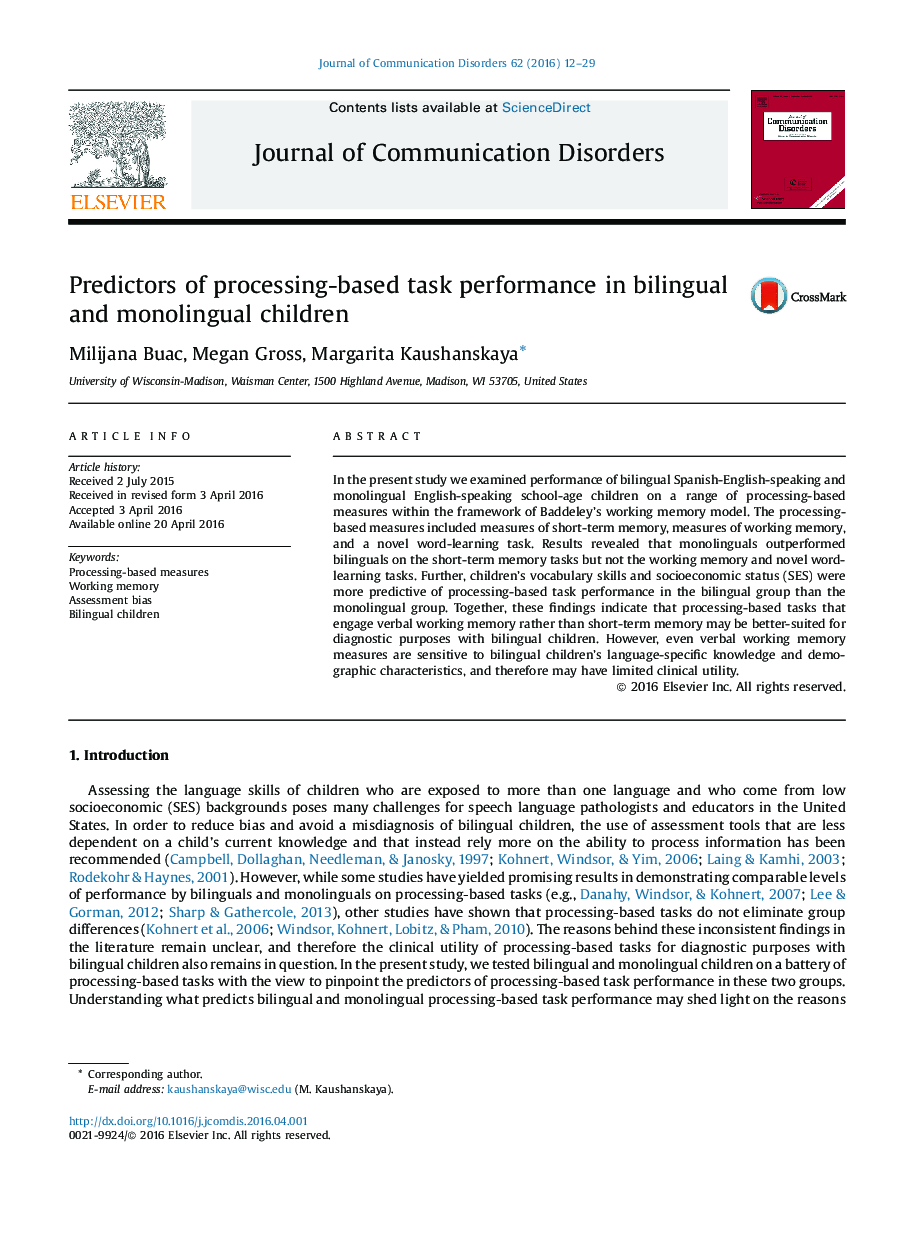| Article ID | Journal | Published Year | Pages | File Type |
|---|---|---|---|---|
| 910715 | Journal of Communication Disorders | 2016 | 18 Pages |
•Monolingual English and bilingual English-Spanish children were tested.•Children completed short-term memory, working memory, and novel word-learning tasks.•Monolinguals outperformed bilinguals on short-term memory tasks.•No group differences were observed for working memory or word-learning tasks.•Vocabulary was more predictive of bilingual than of monolingual performance.
In the present study we examined performance of bilingual Spanish-English-speaking and monolingual English-speaking school-age children on a range of processing-based measures within the framework of Baddeley’s working memory model. The processing-based measures included measures of short-term memory, measures of working memory, and a novel word-learning task. Results revealed that monolinguals outperformed bilinguals on the short-term memory tasks but not the working memory and novel word-learning tasks. Further, children’s vocabulary skills and socioeconomic status (SES) were more predictive of processing-based task performance in the bilingual group than the monolingual group. Together, these findings indicate that processing-based tasks that engage verbal working memory rather than short-term memory may be better-suited for diagnostic purposes with bilingual children. However, even verbal working memory measures are sensitive to bilingual children’s language-specific knowledge and demographic characteristics, and therefore may have limited clinical utility.
